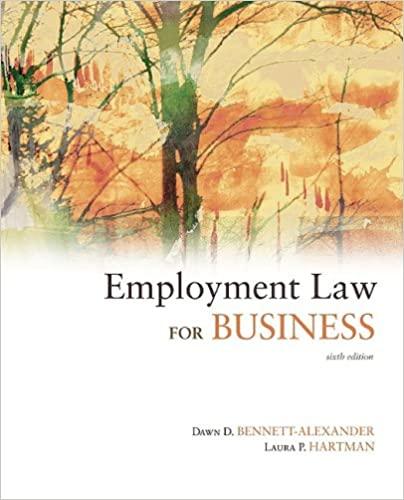Question:
Max Huber was the agency manager at Standard Insurance’s Los Angeles office. He was employed as an at-will employee, and his contract did not specify any fixed duration of guaranteed employment. Huber was discharged by the company after eight years because of his alleged negative attitude, the company’s increasing expense ratio, and the agency’s decreasing recruiting. Huber provided evidence that he had never received negative criticism in any of his evaluations, and that his recruiting had been successful. Huber demonstrated that, even though the company had a decrease in recruitment during his employment, he himself had a net increase of contracted agents of 1,100 percent. Huber claims that he was discharged because he was asked to write a letter of recommendation about his supervisor, Canfield, whose termination was being considered. Johnson, Canfield’s supervisor, was disappointed with the positive recommendation that Huber wrote because it made Canfield’s termination difficult to execute. Johnson is alleged to have transferred Huber to expedite Canfield’s termination, and he eventually discharged Huber in retaliation for the positive letter of recommendation. If Huber files suit, what result? [Huber v. Standard Insurance Co., 841 F.2d 980 (9th Cir. 1988).]







